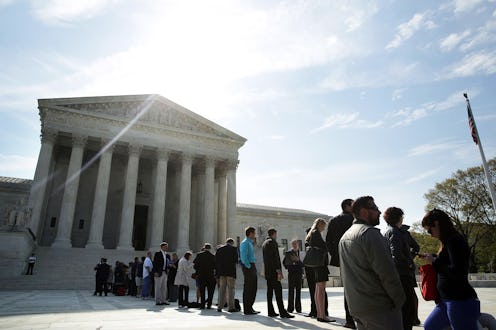News
SCOTUS Upholds State Ban On Affirmative Action
On Tuesday, the Supreme Court ruled 6-2 to uphold Michigan's ban on affirmative action. The ruling concluded that Michigan voters were allowed to ban the use of racial preferences in college admissions, which they did back in 2006 with the passage of Proposal 2, a ballot initiative. The ruling was short one opinion, as Justice Elena Kagan recused herself, but it didn't end up mattering as six of her fellow justices — Roberts, Scalia, Thomas, Alito, Kennedy and Breyer — came down on the winning side.
The decision carries huge implications for the ongoing state of minority civil rights in America, and is the second such high-profile case in the last two years. In 2013, the court struck down key elements of the Voting Rights Act of 1965, with the conservative majority ruling that racism is no longer prevalent enough to necessitate special oversight of elections in historically discriminatory states like Texas and South Carolina.
In a way, Tuesday's ruling is another facet of that same decision: That the function affirmative action was meant to have — to lift up historically disadvantaged, systemically abused communities by widening access to college, trying to mitigate the pre-existing privilege which many white applicants have over their minority counterparts — is not a right, and can be stripped by popular vote.
This shouldn't come as much surprise, given the court's leaning. In 2007, Chief Justice John Roberts uttered the following take on race in America: "The way to stop discrimination on the basis of race is to stop discriminating on the basis of race."
The longest and most vehement dissent from the majority position was that of Justice Sonia Sotormayor, one of the court's two minority Justices (along with arch-conservative Clarence Thomas). Her 58-page dissent exceeded the length of all six majority opinions combined, and warned that "without checks, democratically approved legislation can oppress minority groups." She was joined in dissent by Justice Ginsberg.
In specifically ruling the affirmative action is a question perfectly open to voters, the court's likely set a precedent that's going to ripple throughout the entire country — don't be surprised to see Republican-led state legislatures and parties pushing similar efforts in the coming months and years, just as we've seen with so-called religious freedom laws in recent months.
